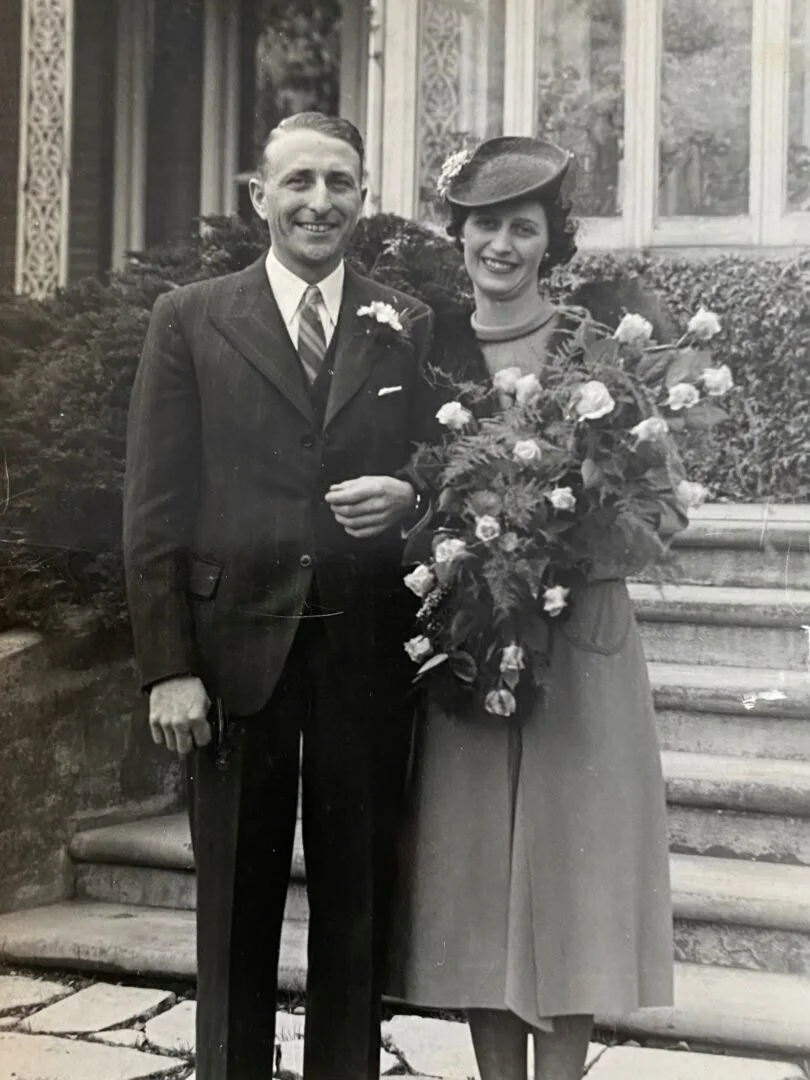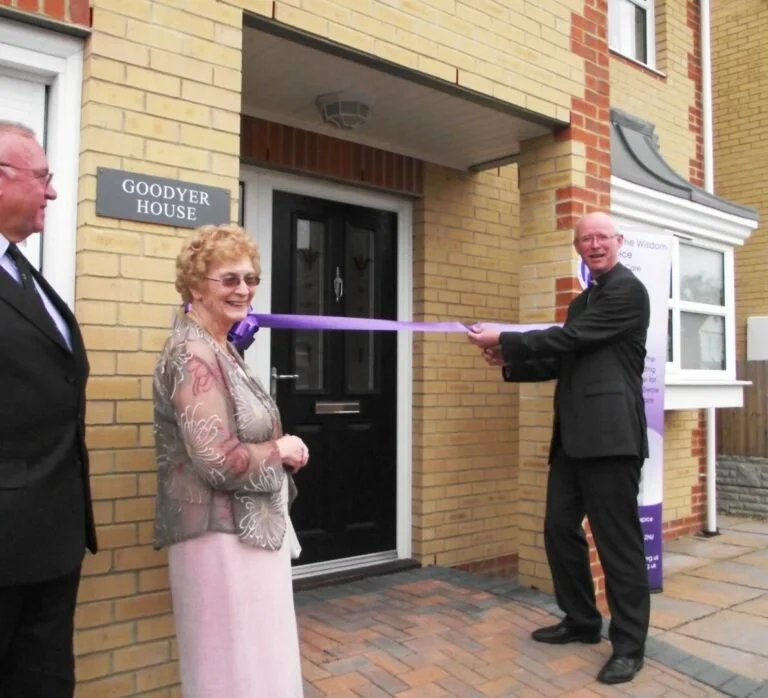Gifts in Wills
Your Legacy is Our Future
When drafting your Will, your loved ones understandably come first. However, if supporting your local community during challenging times resonates with you, please consider including us in your plans.
Gifts left to us in Wills have enabled us to expand our services, recruit more nurses, and provide essential care to those who need it most.
Wisdom Hospice Charity must raise over £2,500 every day to fulfil its commitment to supporting hospice services and providing free care. Leaving us a Gift in your Will is a profound and enduring way to support our cause. It costs nothing during your lifetime but leaves a lasting impact for years to come.
Your legacy is our future. By including a Gift in your Will, you'll be ensuring that future generations in Medway and Swale receive the care they deserve during life-limiting illnesses.
This is Hospice Care
How your Gift in Will helps hospice care live on for all, for now, forever.
Hospice care is free at the point of use. But, unlike the NHS, it is not fully state-funded. While hospices receive some government funding, more than £1.3 billion of the £1.8 billion they need each year comes from generous donors.
That’s why Gifts in Wills are crucial to the survival and growth of hospices across England, Scotland and Wales, providing 15% of the voluntary income that hospices rely on to deliver essential care.
By leaving a Gift in your Will, you can help ensure that hospice care is there for anyone with a life-limiting illness to embrace the life they have left.
Support your hospice
Hospice care supports over 300,000 people across the UK every year, including those in your community.
But this vital care would not exist without your support.
With a Gift in your Will, you can help ensure that everyone has access to the support they need for generations to come.
Seeking Legal Advice?
While we cannot offer legal advice, we're here to address any questions or concerns you may have about including a gift to Wisdom Hospice Charity in your Will.
Please note that we do not endorse any specific solicitors or Will writing services.
It's essential to seek the best advice for your circumstances.
Get in Touch
For confidential assistance or to learn more, please email Emma Dengate at info@wisdomhospicecharity.org.uk or call 01634 831163.
By leaving us a Gift in your Will, you will:
Make a meaningful difference to patients and families facing life-limiting illnesses.
Contribute to the future of hospice care in your community.
Alleviate the tax burden on your personal beneficiaries.
The Importance of Making a Will
Crafting a Will is a vital step in articulating your preferences regarding the distribution of your assets, property, and belongings after your passing. By having a Will in place, you can provide for the needs of your loved ones and ensure that your desires are honoured.
Consequences of Not Writing a Will
Failure to draft a Will means that your estate will be distributed according to the rules of intestacy. Consequently, your assets may not be distributed in alignment with your desires.
Do I need to leave a gift to Wisdom Hospice Charity?
While it's not mandatory to include a gift to Wisdom Hospice Charity or any charity in your Will, your solicitor may inquire about your intentions regarding charitable giving during the will-making process. Opting to leave a gift to Wisdom Hospice Charity can significantly contribute to providing specialised care to individuals facing life-limiting illnesses and their families in Medway and Swale. Every donation, regardless of size, has the potential to make a meaningful impact.
-
Crafting a Will ensures that your wishes are honoured upon your passing. Without a valid Will, your estate will be distributed according to the rules of intestacy, which may not align with your desires or those of your family. For more insights into the financial aspects of making a Will, refer to the Gov.uk website.
-
Seeking independent advice from a Solicitor is crucial when making or updating your Will. To locate a Solicitor in your vicinity, visit The Law Society Website.
Things to Consider Before Meeting with a Solicitor:
Assess the value of your estate
Determine beneficiaries
Consider guardianship for your children if applicable
Select trusted individuals as Executors to ensure your wishes are carried out
Decide on leaving gifts to charities, if desired
If legal jargon is unfamiliar, our Legal Terminology Made Simple section may offer assistance.
-
Regularly review and update your Will to reflect changes in circumstances or priorities. In some instances, minor adjustments or additions can be made with a codicil.
-
Store the original copy with your Solicitor or in a secure location, such as a bank. Maintain a copy at home, preferably in a fireproof box, and inform your Executors of its whereabouts for ease of access.
-
Before drafting your Will, it's beneficial to ascertain the value of your assets, deducting any liabilities, to accurately gauge the worth of your estate.
Your Assets:
Your residence (current market value)
Additional properties, domestically or internationally
Financial assets: bank accounts, building society accounts, National Savings, or Premium Bonds
Outstanding debts owed to you
Business holdings (including shares in private enterprises)
Investments
Life insurance policies
Pensions (lump sums payable upon death)
Vehicles: cars, motorcycles, caravans, boats, etc.
Household contents
Other personal belongings
Any other assets transferred upon your demise
Calculate the sum of all these assets—referred to as Total A.
Your Liabilities:
Remaining mortgage payments
Overdraft balances
Any outstanding loans
Other financial obligations
Calculate the sum of all these debts—referred to as Total B.
The value of your estate is determined by subtracting Total B from Total A.
-
If legal jargon feels daunting, here's a helpful glossary to decode some common terms used in Will writing:
Will: A legally binding document outlining your wishes and how your estate will be distributed after your passing.
Codicil: A legally binding addition to your Will, allowing for minor adjustments. Major changes may necessitate a new Will.
Executor: An individual designated to carry out your Will's instructions. It's wise to appoint two executors, in case one is unavailable. Executors can be friends, family, or professionals like solicitors.
Beneficiary: Someone, or a charity, designated to receive assets or benefits from your Will.
Bequest: A gift, also referred to as a legacy, specified in your Will.
Estate: The entirety of your possessions, including property and finances.
Intestacy: Dying without a valid Will or having one declared invalid.
Life Interest Legacy: Also called a reversionary legacy, this grants a beneficiary rights to property for their lifetime, with ownership transferring to another upon their death.
Conditional Legacy: A gift contingent upon specific conditions, such as a beneficiary passing away before you.
Inheritance Tax: Tax applied to the portion of your estate exceeding the nil-rate threshold.
Residue: The remainder of your estate after debts, taxes, and specified bequests are settled.
-
Notifying us of a gift in Will
If you are administering an estate with a gift that has been left to Wisdom Hospice Charity please email info@wisdomhospicecharity.org.uk or call 01634 831163 to notify us. If possible, it would be helpful if you could provide the information below:
The name of the deceased and their last address
The gift amount
A copy of the Will
A copy of probate
The Executor’s name and address
Paying in a legacy gift
We prefer to accept payments by bank transfer or by an online donation.
If you are looking to make a bank transfer, please notify us by emailing info@wisdomhospicecharity.org.uk and we will arrange to send you the bank details. We will then acknowledge receipt by post or email, depending on your requirements.
-
We strongly recommend using a Solicitor or Will-writing expert to help create or change your Will. They can advise and support you to ensure that your estate is distributed exactly according to your wishes and on how to minimise the impact of Inheritance Tax.
If you do decide to leave a Gift in your Will to Wisdom Hospice Charity, you will need to provide clear and unambiguous instruction to your Executors. Here is some wording we recommend that you discuss with your chosen Solicitor:
Suggested wording for a Residuary Legacy (all or part of your net estate)
“I GIVE [all] or […%] of my Residuary Estate to Wisdom Hospice Charity, High Bank, Rochester, Kent, ME1 2NU, Registered Charity No. 284894 for its general charitable purposes AND I DECLARE that the receipt of the Secretary or other proper officer for the time being of Wisdom Hospice Charity shall be a complete discharge to my executors and trustees for the legacy given to it.”
To leave a Pecuniary Gift (a Cash Sum) please use one of these wordings:
“I GIVE the sum of (£ ) (in words) to Wisdom Hospice Charity, High Bank, Rochester, Kent, ME1 2NU, Registered Charity No. 284894 for its general charitable purposes AND I DECLARE that the signature of the Secretary or other proper officer for the time being of Wisdom Hospice Charity shall be a complete discharge to my executors and trustees for the legacy given to it.”
-OR- to index link your gift so it retains its value in the future:
“I GIVE to Wisdom Hospice Charity, High Bank, Rochester, Kent, ME1 2NU, Registered Charity No. 284894 the Index Linked sum of £ [in words] free from all taxes and duties, for its general charitable purposes AND I DECLARE that the receipt of the Secretary or other proper officer of the Charity for the time being of Wisdom Hospice Charity shall be a complete discharge to my executors and trustees for the legacy given to it.”
To leave a Specific Gift (of a valuable object or property):
“I GIVE to Wisdom Hospice Charity, High Bank, Rochester, Kent, ME1 2NU, Registered Charity No. 284894 my [name and description of item] for its general charitable purposes AND I DECLARE that the receipt of the Secretary or other proper officer for the time being of Wisdom Hospice Charity shall be a complete discharge to my executors and trustees for the legacy given to it.”
However, you choose to support Wisdom Hospice Charity, please ensure that any instruction clearly includes our unique registered charity number 284894. This will ensure your gift arrives safely and promptly.
Leaving a Lasting Legacy
We extend our heartfelt gratitude to all who choose to leave a gift to us in their Will. These contributions are invaluable, allowing us to continue providing essential services to those in need.
Types of Legacies
There are three types of gifts you can leave to The Friends of the Wisdom Hospice:
Residuary Gift: A portion, or entirety, of what remains after specific gifts, expenses, and taxes are settled.
Pecuniary Gift: A fixed sum of money. Consider consulting your solicitor about index-linking to preserve its value.
Specific Gift: An item of specific value, such as furniture or jewellery.
Informing the Hospice
If you've chosen to include a gift to us in your Will, thank you sincerely. While it's not mandatory to inform us, we'd appreciate the opportunity to express our gratitude personally. Feel free to reach out to Emma Dengate at 01634 831163 or info@wisdomhospicecharity.org.uk. Alternatively, you can write to us at the address provided above.
We offer sample legacy clauses to help clearly outline your wishes. Please view Suggested Will Clause Wording above.
Regardless of the type of gift, ensure to include our name, address, and charity number for validity:
Wisdom Hospice Charity
The Wisdom Hospice, High Bank, Rochester, Kent, ME1 2NU
Registered Charity Number: 284894
-

Molly's Legacy
-

Goodyer House Legacy
-

Margaret's Legacy


